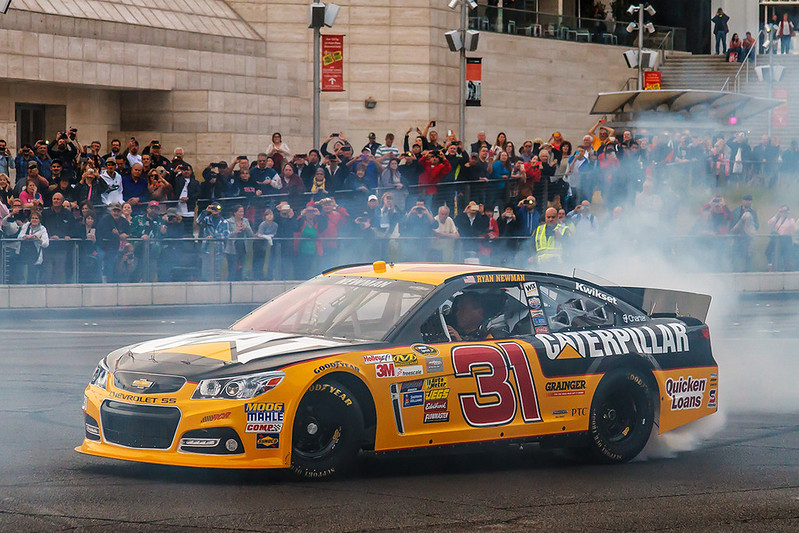 |
| pennstatenews via flickr |
I usually enjoyed chatting with John Fox when he was coach of the Carolina Panthers. He was always congenial in our conversations and occasionally thoughtful and articulate.
Fox was easy to like. But only when he was talking off the record.
On the record? Fox was one of the more difficult coaches to cover. He wasn't as belligerent as some. He wasn't a jerk like others. But Fox was deliberately and maddeningly vague, bland and unresponsive to even the most obvious questions one might ask a head coach of a major professional sports team. He said nothing. For years. He offered no insight to even the most banal questions. I think if I had asked Fox on the record what time it was, he would have said, "it is what it is."
So I can't say I'm particularly surprised by the restrictive new rules for media covering the Chicago Bears during training camp with Fox now in his first year there after stints with Carolina and Denver. According to reports out of the Bears camp, all interviews with players must be requested 24 hours in advance. And reporters aren't allowed to write about what they see in training camp -- even though fans are allowed to tweet whatever they want.
The excuse offered by the Bears is that this will somehow prevent scouts from learning about opponents. Hogwash. If coaches are motivated enough to learn another team's secrets, they don't need the media to help them. See Bill Belichick.
So this isn't about helping the team win. It's about controlling and limiting the media. And whether this was Fox's idea or not, I suspect he doesn't give a hoot if the media's job is suddenly a lot harder.
In Europe, it happens all the time, as The New York Times reported today. One professional soccer team even banned the local media because the owner didn't like the coverage received.
The phase out of independent media coverage of sports teams isn't quite that extensive in the U.S. But it is happening here. Chicago shouldn't be viewed as an aberration, but more likely a trendsetter.
It didn't use to be this way. For years, sports teams and leagues had a symbiotic relationship with the media. Teams needed media coverage for marketing to build interest and sell tickets. Newspapers needed the coverage to help drive readership. It was a win-win no matter what the tone of the coverage. Back in the day, the New York Giants used to provide travel arrangements for some reporters. When I covered the Hartford Whalers years ago, I occasionally took the team's charter flight and the Whalers routinely booked a hotel room for me on the road (the flight and hotel were paid for by the newspaper).
Of course, the internet changed all of that. Teams now create their own content for marketing and can bypass the media to reach directly to the fans. And they are increasingly limiting independent media in favor of their marketing partners like ESPN, Fox Sports, etc., where coverage is more friendly and controlled.
The media still needs sports content to drive readership. But teams and leagues now seemingly view independent media as parasites. So there is a pressure on reporters to build strong relationships with teams through positive coverage. Those who don't adhere to the company line will be increasingly cut out of access to athletes and coaches.
It's even happening in sports like Nascar, which used to be media friendly but has drastically reduced access to drivers in the last year or two. These days, stories need layers of public relations approval before interviews are even scheduled. And it's not unusual for PR reps to ignore emails from media deemed unfavorable.
This is the new normal.

